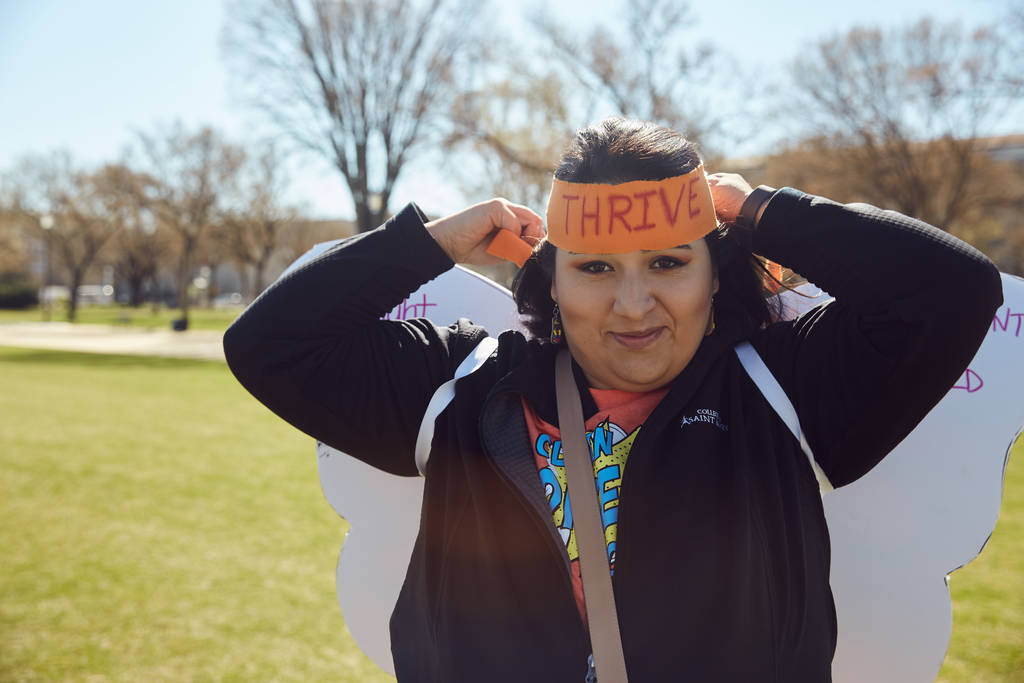Purpose of Messaging Guide
In moments of crisis, new narratives, new policies and new social behaviors are established. This can cut both ways – the 2008 recession helpfully imprinted a new shorthand for inequality: “the 1%”, while in the aftermath of September 11th, the notion of “war on terror” surrounded us. How we act and what we say in this moment can help define perceptions, assumptions and policy preferences in our communities, states and country. But we must act quickly, in coordination and at scale.
In addition to acting with compassion and urgency around immediate needs, we must address the insidious rhetoric that will undermine our long-term shared goals. In a moment of crisis – especially one centered around easily transmitted infection – the messages we must disrupt are rooted in xenophobia, racism, and individualism. More than ever people will be susceptible to fearing “the other,” and without a counter-vision and narrative, dominant media and certain public figures will actively or inadvertently stoke that fear.
Further, decades of testing demonstrate that fear evokes a fight or freeze response, with the latter the far more common response. In order to inspire people to demand more and better, we must thread an increasingly fine needle between articulating the severity of this moment and providing hope that we do indeed have solutions and, by coming together, can demand they be put into place.
The antidote to fear is not despondency or self-isolation, not anger or blame. The antidote to fear is love and connection, even where these cannot be realized in physical presence. Our message should be rooted in the values of interdependence, mutual solidarity, shared purpose and collective action. Because when we are all in for all of us, we can create the world each and every one of us needs to thrive.
Use of Messaging Guide
These messages should inform all communications: public events, social media posts, one-to-one conversations, small meetings, letters to the editor, etc. Ideally, these would also inform a rapid, scaled peer-to-peer texting operation necessary to take the place of present field programs. They can be used to “clap back” at messages and dog whistles that blame immigrants, Asians, or Asian Americans. They can be used to call in people whose initial response is individualism, at great cost to others. They can be used to inspire agency when people are paralyzed by confusion and fear. These messages promote cross-racial solidarity and a vision for our country. These messages should absolutely be used to promote specific policy demands, e.g. increasing SNAP benefits, moratorium on evictions, expansion of Medicaid, etc.,
Key Narrative – to be used in broken out component parts or in entirety, depending on context and medium
(A)
No matter what we look like, where we live, or what’s in our wallets, getting sick reminds us that at our core we’re all just human. But for too long, we’ve let a powerful few divide us to pad their own profits by making life and health a product for sale and blocking our efforts to ensure paid time to care for our loved ones and recover ourselves. We must rewrite the rules to ensure everyone can access the care that we need without fearing we’ll go bankrupt to do it. This is a moment that we must stand with and for each other across our differences and against anything and anyone who seeks to divide us.
(B)
We pull through by pulling together, like we have done in the past. This means demanding the care and paid time every one of us needs. We stand united against a handful of politicians and corporate insurance and pharma industries that would use this crisis to generate profits rather than keep us from getting the testing, vaccines and treatments we need to get and stay well. We condemn those who peddle us lies and misinformation in order to further divide us so we don’t join together to demand proven solutions like universal healthcare, paid time to care and protections that keep us in our homes and ensure we make ends meet.
(C)
Now more than ever, this virus has shown us that we are dependent on each other and whether we’re Black or white, Latino or Asian, native or newcomer, we know it’s time to pull together to demand the testing, treatment and time off we all need to get or stay well. Only by standing united can we ensure our own wellbeing through this outbreak and rewrite the rules to ensure better health for us all for generations to come.
(D)
Now is the time for us to unite across our differences and make policy choices that help every-day people — not the richest 1% and a handful of corporations. As individuals, we can wash our hands, avoid unnecessary travel and check in on our friends and neighbors. As a united force, we can demand our local, state and national governments do everything possible to protect everyone’s health, no exceptions.
Talking Points – Use in combination, mix and match depending on medium and length desired
1. We get through this together. (response to individualism)
● Our own health depends on the health of the person next to us, and the person next to them. Ensuring others can access care is how we take care of ourselves.
● Our families and neighborhoods are stronger, safer and healthier when we come together in moments of joy and celebration, and of illness and crisis.
● We pull through this by pulling together.
● This moment calls on us to go all in for all of us.
2. This is a time to come together across the differences used to divide us. (response to racism, othering, dog-whistles)
● Anyone who seeks to use this health crisis to divide us, scapegoat Asian Americans, immigrants or those struggling to make ends meet, endangers us all.
● Some seek to turn us toward going it alone and fear of each other in response to this viral outbreak. But we know that our own wellbeing is tied to everyone else’s.
● Now more than ever, this virus has shown us that we are dependent on each other and no matter where we come from, what we look like, or how much money we have, we know it’s time to pull together to demand the testing, treatment and time off we all need to get or stay well.
● By standing together and making sure each and every one of us — whether Black or white, Latino or Asian, native or newcomer — has the resources and information we need, we can prevail through outbreak.
3. Protecting our most vulnerable makes us stronger. (response to inequality)
● We are all better off when we are all healthy — especially the most vulnerable among us.
● Any one person’s wellness depends on everyone else’s. Whether it’s people with chronic health conditions or people without shelter, our undocumented neighbors or people living in detention, people providing vital services or those who can’t forgo a paycheck to stay home, we must ensure all of us can access the care we need and have the support required to make the best choices for everyone’s health.
4. When we invest in local government, we invest in us. (response to role of government)
● Local public health officials, healthcare providers and public school teachers and administrators lead us in coordinating services, sharing information, and protecting our health. Local governments need immediate and significant resources to do this work with and for us; it’s past time we ensure we can have what we need by providing the people who care for, inform and educate our communities the resources to do their jobs. From the vaccines required to treat an outbreak to the testing necessary to know who has what, healthcare and paid time to recover has to be for everyone or no one can be sure to get and stay well. When any one of us is blocked from the diagnoses and treatments we require, all of us are vulnerable to unnecessary complications from illnesses we need not spread. By coming together, we can create a fair and comprehensive healthcare system that treats us all as equal and ensures we can stay well.
5. Time to take care of all of us – not just corporations. (response to protecting people and not relying on market “solutions”)
● No matter what you look like, where you live, or how much money you have, when you’re sick, getting care without going bankrupt to do it is everyone’s your first priority. But for too long, we’ve let a powerful few divide us to pad their own profits by making life and health a product for sale. We must rewrite the rules to ensure everyone can access the care that we need.
● As the crisis disrupts our daily lives, including our ability to work, pay rent and send our kids to school, we need to ensure working people can make ends meet, not hand tax breaks to the richest 1% and finance bailouts for corporations.
● The choices our government makes now to help us weather the outbreak of this virus can also set a better course for the future of our communities. Now is the time for us to unite across our differences and make policy choices that help every-day people in pursuit of a safe and thriving nation.

